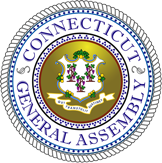Rebuffed Again in CT, Tesla Explores Growth in Westchester
/Tesla’s goal of selling vehicles direct to consumers in Connecticut remains elusive, dismissed out of hand by Connecticut’s legislature this year, as last year and the year before. Even the sole “gallery” the electric car manufacturer and retailer has been operating in the state, in Greenwich, has been ordered by the Connecticut Department of Motor Vehicles to “cease all functions.”
Within a stone’s throw of the state line, in Westchester County, NY, the company is actively exploring potential locations for a new car dealership and customer education center, according to published reports. Under Connecticut’s dealer franchise law, automobiles may only be purchased through independent car dealerships. Tesla’s business model relies on direct-to-consumer sales.
Both a retail center and warehouse in the town of Greenburgh are currently under consideration, Westfair Publications reported this week. “We’ve been working with Tesla for quite some time now in searching for a proper facility in the area where they can house both sales and service,” said James MacDonald of Simone Development Cos., a Bronx-based company that owns both potential Tesla properties, Westfair reported.
In June, as the Connecticut legislature’s regular session concluded, a proposal that would have permitted Tesla to sell cars directly to consumers was never raised for debate. It made it through the Transportation and Finance, Revenue, and Bonding Committees, but was never called for a vote in either chamber.
House Speaker Joe Aresimowicz said at the time that he was reluctant to say that it was the objections of the state’s car dealers, who are subject to the regulations under the state’s motor vehicle franchise system, that killed the Tesla bill, CTNewsJunkie reported. The Connecticut Automobile Retailers Association strongly advocated for defeat of the proposed legislation this year, as in previous years.
In New York, Tesla is currently limited to five sales locations, in accordance with a law passed in that state in 2014. Efforts are underway in New York to increase that number.
A spokesman for Tesla said in June that the company wasn’t quite ready to give up on Connecticut. Diarmuid O'Connell, Tesla's vice president of business development, said in an interview with the Hartford Business Journal in May that the company hoped to open 10 stores if the legislation was approved, which would "conservatively" employ 25 full-time workers.
"We're talking 250 jobs in the near term," O'Connell said, adding that some locations could employ as many as 50 people, the newspaper reported. The company also released a Greenberg Quinlan Rosner poll showing that 74 percent of Connecticut residents "strongly" or "somewhat" support allowing direct sales in Connecticut.
 Tesla is prohibited from selling directly in Connecticut, Michigan, Texas, and West Virginia, according to the company. There are about 1,300 Teslas registered in Connecticut, nearly two-thirds of the electric vehicles in the state, according to the state Department of Motor Vehicles.
Tesla is prohibited from selling directly in Connecticut, Michigan, Texas, and West Virginia, according to the company. There are about 1,300 Teslas registered in Connecticut, nearly two-thirds of the electric vehicles in the state, according to the state Department of Motor Vehicles.
In a recent op-ed published in New York, Nick Sibilla of the Institute for Justice, a libertarian public interest law firm, indicated that in a review of employment figures for car dealerships in Massachusetts, New Jersey and New York, the Acadia Center, a nonprofit focused on creating a clean energy economy, concluded that “there has been no negative impact on auto dealer job levels or trends” in nearby states that allow direct sales of electric vehicles. The Union of Concerned Scientists recently pointed out that “between January and June of 2016, dealers in the Bridgeport to New York City metro area had 90 percent fewer electric vehicles listed for sale than Oakland, when adjusted for relative car ownership.”
Tesla is currently in the midst of raising $1.5 billion as it ramps up production of the Model 3 sedan, its first mass market electric car, with an anticipated pricetag hovering around $35,000, about half the cost of Tesla's previous models, and thought to be more attractive to consumers. The loss in sales tax revenue to Connecticut could be substantial if sales of the Tesla are not permitted in the state, according to some estimates.
Will the company’s plans impact legislatures in Connecticut or New York? Back in June, CTNewsJunkie reported Connecticut House Majority Leader Matt Ritter said he thought the issue might be resolved “when you see more Teslas” on the road. That day may be coming, emanating from Greenburgh if not Greenwich.































